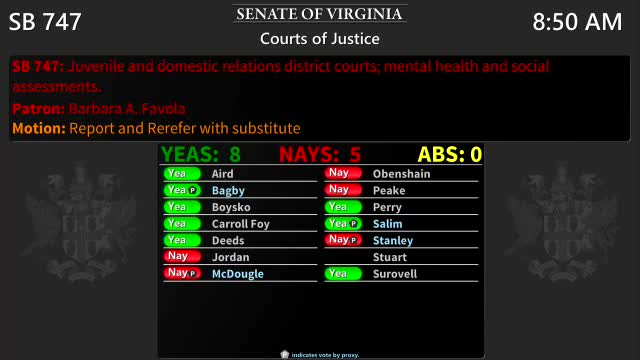Article not found
This article is no longer available. But don't worry—we've gathered other articles that discuss the same topic.
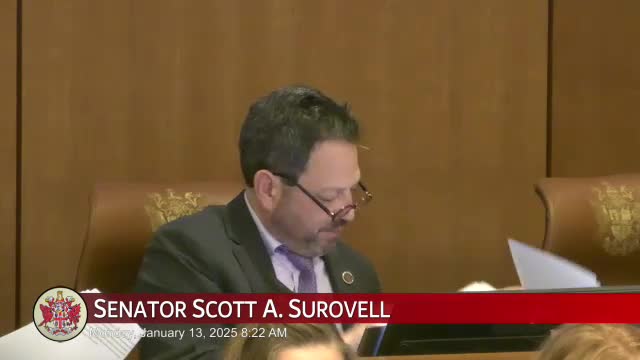
Committee debates raising minimum juvenile-delinquency age to 11; questions on CHINS and detention process
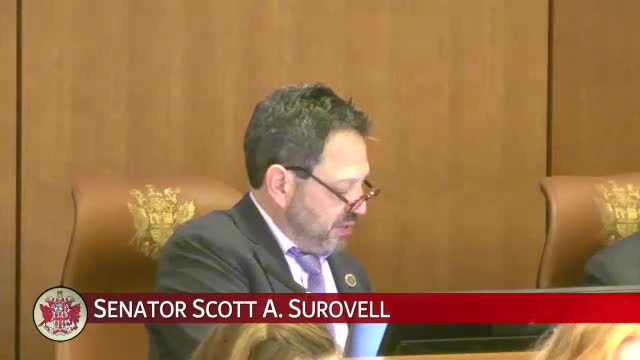
Senate committee advances bill making unauthorized drone flights over defense contractors a felony
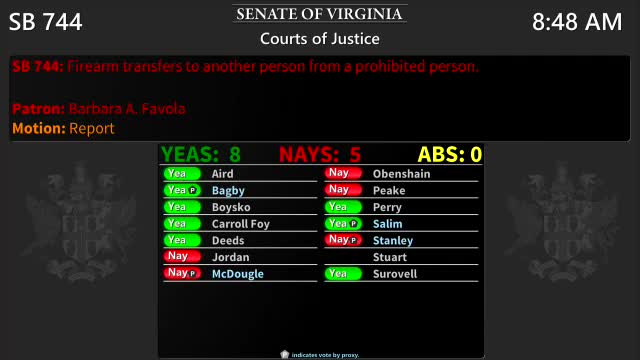
Votes at a glance: key outcomes from the Senate Courts of Justice Committee meeting
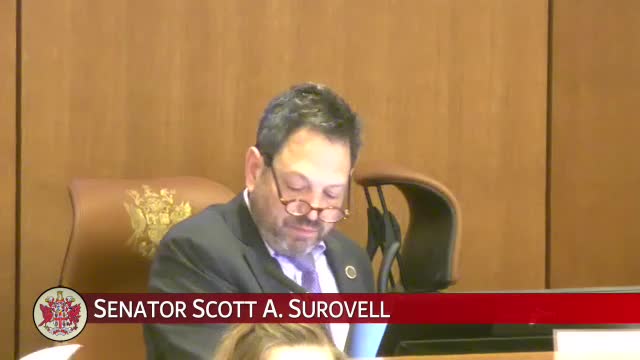
Courts committee votes unanimously to certify judicial candidates; one judge removed from block
